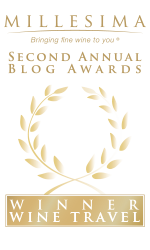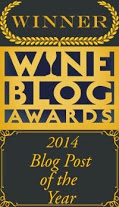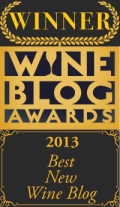Yesterday’s post posited the argument that wine writers should join a harvest at some point in their careers in order to better grasp the fundamentals behind the bottle. I’ve decided to take that challenge and have joined the winemaking team at Paul Cluver Winery for a short, but hopefully illuminating, two week stint over February and March.
The Cluvers pioneered winemaking in the Elgin Valley, touted as South Africa’s answer to the global call for “cool-climate” wines. A review of their line-up confirms it: they produce Pinot Noir, Chardonnay, Riesling, Sauvignon Blanc, and Gewurztraminer. The family has owned the property since 1896, but came from Bremen, Germany originally. The vast farm boasts a renowned mountain biking track, and an amphitheater employed for summer concerts, in addition to commercial pear and apple orchards (and two zebras).
Prior to my arrival, Paul Cluver, managing director of the family business, answered a few questions about the farm, his best memories in 20 years at the winery, and the wines he likes to drink (other than his own Seven Flags).
When were the first vines planted and how have the vineyards/winery evolved since inception?
My father planted the first vineyards in 1987, and in 1990 Paul Cluver Wines became the first wines bottled as wine of origin in Elgin. We planted a wide variety of grapes in the beginning, including varietals like Cabernet Sauvignon, Merlot, and Shiraz. Over time we have focused more on the varietals which we found we excel at: cool climate white varietals and Pinot Noir. Our winery was founded after apartheid, so the dissolution of it did not affect our business.
How many wines do you currently produce? How did you decide on those varieties?
We produce a total of 10 wines from five different varietals. Sauvignon blanc, two Chardonnays, three Rieslings, three Pinot Noirs, and a Gewürztraminer. Our focus is to produce the best wine we can within South Africa for each wine we make given the area we are in and what our terroir can produce. Over the last 20 years we have started to better understand our terroir and which varietals do well here.
What are some of your best memories at the winery?
Being rated in the top ten wineries of South Africa, our winemaker joining the Cape Winemakers Guild, the release of our first Seven Flags Pinot Noir, and being recognized for our contribution to sustainable production.
Has keeping the winery a family operation been difficult?
We have an amazing family that has worked well together through the generations. Sure there have been challenges, but those challenges have helped us become better at what we do.
Has climate change impacted your region yet?
No, although it is something that we are very conscious about.
How has Elgin changed in the last decade?
The fruit industry in Elgin experienced a very negative cycle from the mid-nineties to about 2005. During this time, the wine industry took off in Elgin Valley. Luckily, the fortunes of the fruit industry have improved in the last couple of years.
How has the South African wine industry changed in the last decade?
One of the major changes has been the fact that the world has opened up for South Africa. This has given us the opportunity to travel and learn. Most South African winemakers end up working at least one season overseas, learning and experiencing the quality of what the world has to offer. At the same time, we have been privileged to be visited by some of the most passionate wine personalities in the world.
What excites you most about South Africa’s vinous future?
Our ability to pursue excellence without being limited by legislation like in European wine growing regions.
What frustrates you most about South Africa’s wine industry? What could be improved?
The fact that we have such a low image overseas. I believe our wines offer exceptional quality but they are not recognized for the quality they offer. We all need to work together to improve our image overseas.
Do you ever visit the U.S.?
Yes. I have been there every year for the last several years. I usually go to the East Coast (New York, Boston, Richmond and Florida), Chicago and recently have also been to Seattle and Dallas. I love New York City
Where do you like to go for a holiday?
My wife and I love going on safaris, although we also love travelling in general. We have our favourites like New York, Paris and Burgundy although we also love discovering new places.
What non-S.A. wines do you like to drink?
I try to drink as many different wines from as many different places as I can in order to learn as much as possible. My favourite areas are Burgundy, German Rieslings and Pinot Noir, and Loire wines.













